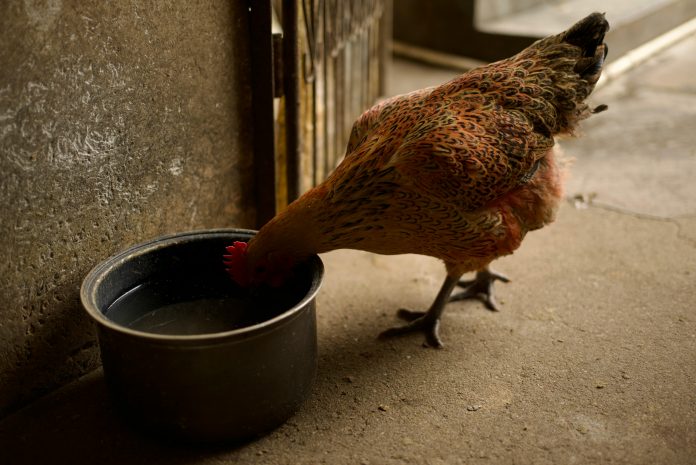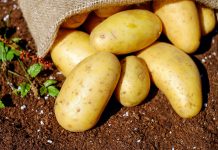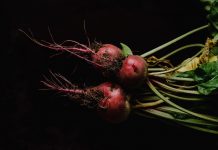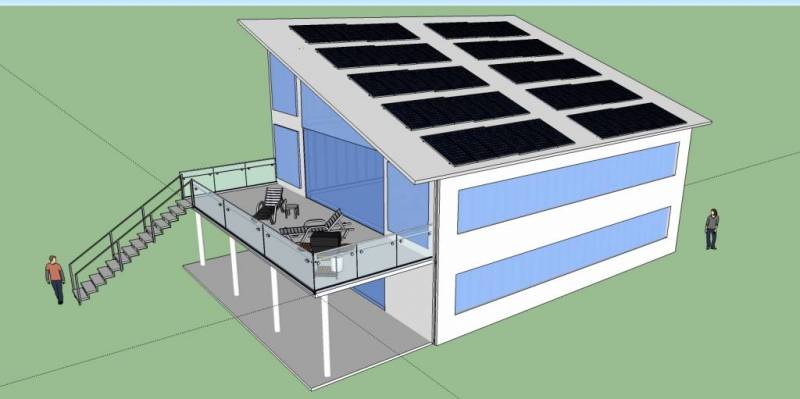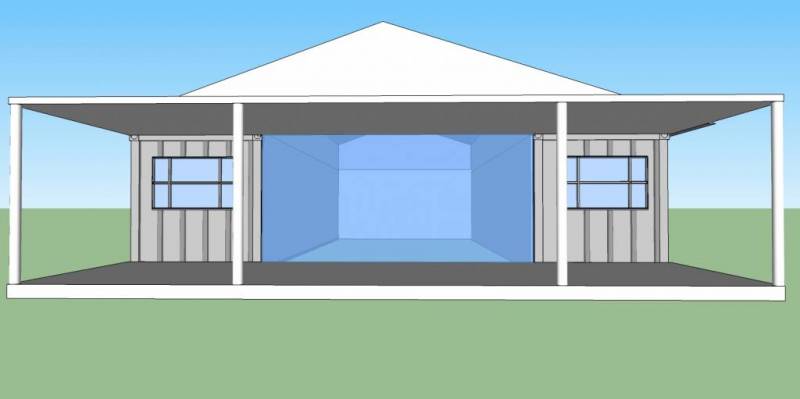Imagine a crisp winter morning, snow-covered landscapes, and your clucking companions eagerly awaiting breakfast. But there is a problem—your chicken water is a solid block of ice! Don’t let winter’s icy grip disrupt your poultry routine. In this comprehensive guide, we will discuss six ways to keep your chicken hydrated even when the temperatures drop. Say goodbye to the frozen water bowl predicament, and let us take you on a journey through practical solutions that will keep the water liquid even in the chilliest of seasons. Winter may be cold, but your chickens don’t have to be thirsty!
1. Repurposing Old Tires
When it comes to dealing with the winter freeze, the solution might be lying in your garage – old tires. These seemingly useless rubber discs can be repurposed into a fortress against icy waters. The rubber material acts as a shield, creating a barrier between the cold ground and your water container. Ingeniously, you can nestle a water bucket or a black rubber tub snugly within the tire and surround it with insulating materials like hay or wood shavings.
Old tires offer more than just insulation as they serve a dual purpose. Elevating the waterer above the ground not only shields it from the biting cold but also reduces the chances of it becoming a casualty of soiled bedding or droppings. Say goodbye to frozen water headaches and embrace the warmth of this tire-insulated haven for your chicken!
2. Take Advantage of the Sun
Why not let the sun do some of the heavy lifting in keeping your feathered companions hydrated during the chilly months? Embracing the power of the sun isn’t just an eco-friendly move but a practical solution to fend off frozen water troubles.
Trade in your conventional plastic or metal waterer for a black rubber tub – a simple yet effective hack. Placed strategically in a sunny chicken run, this unassuming tub becomes a heat-absorbing powerhouse throughout the day. The black rubber material soaks up the sun’s rays and create a reservoir of warmth. Come nighttime, this stored heat can be just what you need to prevent your waterer from freezing chicken water. Even better, black rubber tubs boast a larger surface area, meaning they take longer to freeze compared to their counterparts. With this option, you don’t have to go through the hassle of multiple daily water replacements. Let the sun take center stage in keeping your poultry hydrated and happy.
3. Incorporate Natural Insulators
Sometimes the most effective solutions are the ones nature graciously provides. Natural insulators like straw, hay, and wood shavings are simple yet powerful materials that excel at trapping air and preserving heat.
You can easily use them by wrapping your water containers in a snug embrace of these natural wonders. It is a DIY insulation technique that requires minimal effort but yields significant results. Create a cozy cocoon by packing straw, hay, or wood shavings around and beneath your water containers. This protective layer acts as a robust shield against the biting cold and slows down the freezing process. Doing so ensures your poultry stays comfortably hydrated.
A word of caution: nature’s insulators perform optimally when kept dry. Wetness can significantly diminish their ability to trap air and heat. So, as you execute this method of natural insulation, keep a watchful eye on the weather to ensure your feathered friends enjoy the warmth without any compromise.
4. The Magic of Ping Pong Balls
In the quest to thwart frozen water challenges, an unconventional yet effective solution involves the use of ping pong balls. Imagine a few of these lightweight, hollow balls delicately floating on the water’s surface, not just offering visual interest but serving a practical purpose.
The concept is intriguing yet straightforward. By disrupting the surface tension of the water, these buoyant balls act as gentle ice disruptors. For optimal results, place them within a rubber feed pan as it enhances their ability to keep the water in constant motion. As your chickens peck at these floating orbs, they unintentionally contribute to preventing the formation of ice crystals.
It is worth noting that this method is most effective when temperatures hover around freezing. In more severe cold conditions that could lead to the solidification of water, the ping pong balls may freeze into the water. Therefore, while this approach adds a touch of innovation to milder frosty days, it is prudent to adjust strategies during more intense cold spells.
5. Use Heat Lamps
As winter settles in, the thought of heat lamps may cross your mind as a solution to keep chicken water from freezing. However, tread carefully, for with warmth comes a potential fire hazard.
If you opt for a heat lamp, prioritize models with infrared bulbs. Unlike their light-focused counterparts, these bulbs generate more heat and provide the warmth your chickens crave without unnecessary illumination.
Safety is paramount. Securely fasten the lamp and ensure it is far from anything flammable and out of your chickens’ curious reach. Regular inspections are non-negotiable – check cords, fixture security, and identify any potential hazards. It’s a must you get your hands on the owner builder reports Melbourne of every property you own.
Adding an extra layer of safety, consider installing a smoke detector in the coop. Opt for models that can alert your phone, guaranteeing peace of mind even when your coop is a distance away. By balancing warmth and safety, your chickens can enjoy a cozy winter without compromising their well-being.
6. Apple Cider Vinegar Could Be Useful
Consider adding a few capfuls of apple cider vinegar to your chickens’ water. This simple addition can raise the freezing point, offering a bit of reprieve from the icy grasp of winter.
The magic lies in the fact that apple cider vinegar freezes at a slightly lower temperature – 28°F instead of the usual 32°F. While this may not be a silver bullet for extremely frigid conditions, it can work wonders in climates where temperatures hover just below freezing.
The benefits extend beyond winter water woes. Apple cider vinegar can act as a health elixir for your chickens by fostering a robust immune system. The introduction of helpful digestive bacteria replaces harmful gut bacteria and help contribute to overall well-being.
Wrapping It Up
As winter wraps its icy fingers around your coop, don’t let frozen water affect your chicken’s well-being. From tire-insulated sanctuaries to solar-powered warmth, we have revealed practical solutions for you to try. As you implement these strategies, may your coop echo with the content clucks of well-hydrated and happy chickens!


